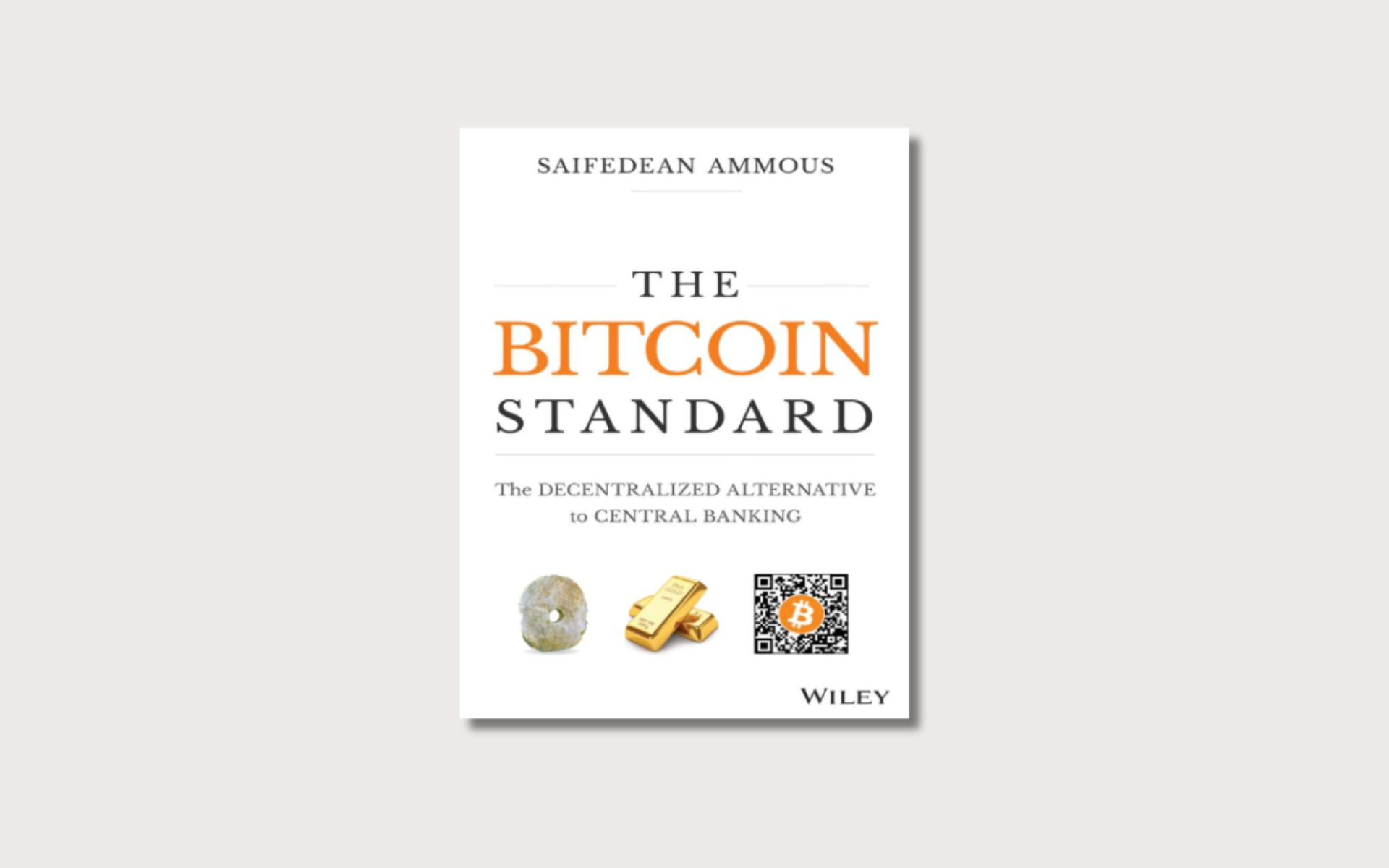“The Bitcoin Standard: The Decentralized Alternative to Central Banking” by Saifedean Ammous is a seminal work that has become a cornerstone for those interested in understanding the economic principles underpinning Bitcoin. Published in 2018, this book delves into the history of money, the failures of centralized banking, and the revolutionary potential of Bitcoin as a decentralized alternative. Ammous presents a compelling argument for why Bitcoin could emerge as a superior form of money and store of value in the modern world. This article will explore the key themes, arguments, and critiques presented in “The Bitcoin Standard.”
The Evolution of Money
The History of Money
Ammous begins by tracing the history of money, starting from barter systems and progressing through the development of various forms of currency, including commodity money (such as gold and silver), fiat money, and finally, Bitcoin. He emphasizes that throughout history, money has always been a technology that evolves to meet the needs of society. According to Ammous, the primary function of money is to serve as a medium of exchange, a store of value, and a unit of account.
The Failure of Fiat Money
One of the central arguments in the book is the failure of fiat money. Ammous critiques the modern monetary system, particularly the role of central banks in creating and controlling fiat money. He argues that the abandonment of the gold standard in the 20th century led to a significant degradation in the quality of money, resulting in inflation, economic instability, and the erosion of individual savings. Fiat money, he contends, is inherently flawed because it can be manipulated by governments and central banks, leading to unsustainable economic policies and cycles of boom and bust.
The Properties of Sound Money
Scarcity
Ammous introduces the concept of “sound money,” which he defines as money that is resistant to manipulation and preserves its value over time. One of the key properties of sound money is scarcity. Throughout history, the most successful forms of money have been those that are scarce and difficult to produce. For example, gold became widely adopted as money because it is relatively rare and requires significant effort to mine and refine. Similarly, Bitcoin’s fixed supply of 21 million coins makes it inherently scarce, aligning it with the principles of sound money.
Durability, Portability, and Divisibility
In addition to scarcity, Ammous highlights other important characteristics of sound money, including durability, portability, and divisibility. These attributes have allowed various forms of money to be effective in facilitating trade and preserving wealth. Gold, for instance, is durable and does not corrode over time, making it a reliable store of value. It is also portable and divisible, allowing it to be easily transported and divided into smaller units for transactions. Bitcoin, according to Ammous, possesses these same qualities in the digital realm, making it a strong candidate for the role of sound money in the 21st century.
The Economic Implications of Bitcoin
The Deflationary Nature of Bitcoin
One of the most debated aspects of Bitcoin is its deflationary nature. Unlike fiat currencies, which can be printed in unlimited quantities, Bitcoin’s supply is capped at 21 million coins. Ammous argues that this deflationary characteristic is a major strength, as it ensures that Bitcoin’s value will increase over time, rewarding savers rather than penalizing them through inflation. In contrast, fiat money loses purchasing power over time due to inflation, which erodes savings and incentivizes excessive consumption and debt.
Time Preference and Capital Accumulation
Ammous introduces the concept of “time preference,” which refers to the degree to which individuals value present consumption over future consumption. A low time preference indicates a preference for saving and investing for the future, while a high time preference suggests a focus on immediate gratification. He argues that sound money, like Bitcoin, encourages a low time preference because it retains its value over time. This, in turn, promotes capital accumulation, long-term investment, and sustainable economic growth.
Bitcoin as a Hedge Against Inflation
A significant portion of the book is dedicated to explaining how Bitcoin can serve as a hedge against inflation. Ammous points out that throughout history, governments have often resorted to printing money to finance wars, social programs, and other expenditures, leading to hyperinflation and the collapse of currencies. Bitcoin’s fixed supply makes it immune to such manipulation, offering individuals a way to protect their wealth from the eroding effects of inflation. Ammous suggests that as more people recognize this property of Bitcoin, it will increasingly be seen as a safe haven asset similar to gold.
The Social and Political Implications of Bitcoin
Decentralization and Trustlessness
Bitcoin’s decentralized nature is one of its most revolutionary features. Unlike traditional financial systems, which rely on trusted intermediaries such as banks and governments, Bitcoin operates on a peer-to-peer network without any central authority. This “trustless” system, as Ammous explains, reduces the risk of corruption, censorship, and financial exclusion. By eliminating the need for intermediaries, Bitcoin empowers individuals to take control of their own wealth and participate in the global economy on equal footing.
Financial Sovereignty and Privacy
Ammous also discusses the concept of financial sovereignty, which refers to the ability of individuals to control their own financial affairs without interference from external forces. In a world where governments can freeze bank accounts, impose capital controls, and monitor financial transactions, Bitcoin offers a means of preserving financial privacy and autonomy. By using Bitcoin, individuals can transact freely without fear of censorship or surveillance, making it a powerful tool for protecting individual rights and freedoms.
Bitcoin and Economic Freedom
The book argues that Bitcoin has the potential to enhance economic freedom by providing an alternative to the centralized control of money. In many parts of the world, people suffer under oppressive regimes that use monetary policy as a tool of control. Hyperinflation, capital controls, and currency devaluation are common in such environments, leading to widespread poverty and economic instability. Bitcoin offers a way for individuals to escape these systems and store their wealth in a currency that is beyond the reach of any government. Ammous posits that widespread adoption of Bitcoin could lead to a more free and prosperous world by reducing the power of governments to manipulate economies for their own ends.
Criticisms and Counterarguments
Volatility and Speculation
While Ammous makes a strong case for Bitcoin, there are several criticisms and counterarguments that deserve consideration. One of the most common criticisms of Bitcoin is its volatility. The price of Bitcoin has experienced significant fluctuations since its inception, leading some to question its suitability as a store of value. Critics argue that this volatility makes Bitcoin more of a speculative asset than a reliable form of money. However, Ammous counters that volatility is to be expected in the early stages of adoption and that over time, as Bitcoin’s market matures, its price stability will improve.
Energy Consumption and Environmental Impact
Another major criticism of Bitcoin is its energy consumption. Bitcoin mining, the process by which new coins are created and transactions are validated, requires significant computational power and energy. Some environmentalists have raised concerns about the carbon footprint of Bitcoin mining, arguing that it contributes to climate change. Ammous addresses this issue by arguing that Bitcoin’s energy consumption is a necessary cost for securing a decentralized and trustless monetary system. He also suggests that Bitcoin mining could drive the development of renewable energy sources and more efficient technologies.
Regulatory Challenges and Government Resistance
Bitcoin’s decentralized nature poses a challenge to governments and central banks, which may see it as a threat to their control over the financial system. As a result, there is a risk that governments could attempt to regulate or even ban Bitcoin. Ammous acknowledges this possibility but argues that Bitcoin’s global and decentralized nature makes it difficult to suppress. He suggests that as more people and institutions adopt Bitcoin, governments will be forced to adapt rather than resist, leading to a gradual shift towards a more decentralized financial system.
The Future of Bitcoin and the Global Economy
Bitcoin as Digital Gold
Ammous concludes by speculating on the future of Bitcoin and its potential role in the global economy. He likens Bitcoin to “digital gold,” arguing that it could become the ultimate store of value in the digital age. Just as gold served as the foundation of the global monetary system for centuries, Bitcoin could emerge as the cornerstone of a new, decentralized financial system. He envisions a world where Bitcoin coexists with fiat currencies, serving as a hedge against inflation and a safe haven for investors.
The Gradual Adoption of Bitcoin
The author also discusses the potential for gradual adoption of Bitcoin. He suggests that as more people recognize the shortcomings of fiat money and the advantages of Bitcoin, demand for Bitcoin will increase. This process may take time, as individuals and institutions gradually come to trust and understand the technology. However, Ammous is optimistic that over the long term, Bitcoin will gain widespread acceptance and play a significant role in the global economy.
Challenges to Adoption
Despite his optimism, Ammous acknowledges that there are significant challenges to the widespread adoption of Bitcoin. These include technical barriers, such as the complexity of using and securing Bitcoin, as well as social and psychological barriers, such as the inertia of existing financial systems and the skepticism of the general public. Additionally, the potential for government regulation and resistance poses a significant hurdle. However, Ammous believes that these challenges can be overcome through education, technological innovation, and the gradual recognition of Bitcoin’s benefits.
Conclusion
“The Bitcoin Standard” by Saifedean Ammous is a thought-provoking exploration of the potential of Bitcoin as a decentralized alternative to central banking. Through a detailed examination of the history of money, the failures of fiat currencies, and the unique properties of Bitcoin, Ammous presents a compelling case for why Bitcoin could emerge as a superior form of money in the 21st century. While the book has its critics and acknowledges the challenges ahead, it remains an influential work that has shaped the conversation around Bitcoin and its role in the global economy.
Ammous’s arguments for the economic, social, and political implications of Bitcoin resonate with those who are concerned about the current state of the global financial system and are looking for alternatives. Whether or not one agrees with all of Ammous’s conclusions, “The Bitcoin Standard” is an essential read for anyone interested in understanding the revolutionary potential of Bitcoin and the broader implications of decentralized monetary systems.

